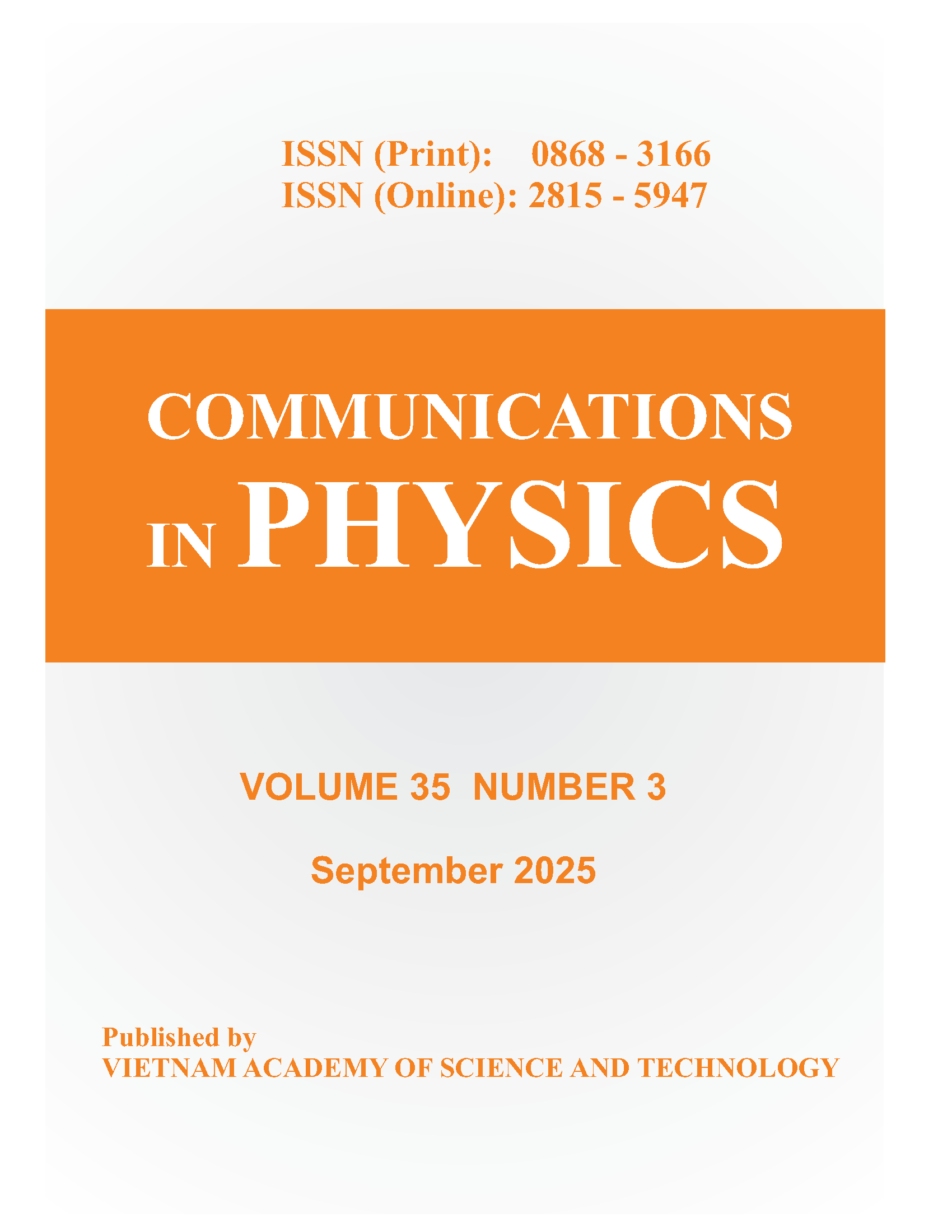Thermal Conductivity of Ethylene Glycol Based Copper Nanoparticle Decorated Graphene Nanofluids
Author affiliations
DOI:
https://doi.org/10.15625/0868-3166/26/4/8705Keywords:
graphene, copper decorated graphene, nanofluid, thermal conductivityAbstract
In this paper, thermal conductivity of ethylene glycol based copper nanoparticle decorated graphene (Cu/Gr) nanofluids are successfully synthesized by a chemical reduction tecnique using ascorbic acid antioxidant agent. Nano-sized copper nanoparticles is decorated on functionalized graphene, and then dispersed uniformly in ethylene glycol (EG) to make the nanofluids. Morphology, phase composition and thermal conductivity of nanofluids are investigated in detail. Thermal conductivity of nanofluid containg Cu/Gr with mass ratio of 5:1 shows an enhancement about 10% and 29% at 30oC and 60oC comparing with EG fluid only. The results show the high potential application of Cu/Gr nanofluid in heat transfer fields.Downloads
Downloads
Published
How to Cite
Issue
Section
License
Communications in Physics is licensed under a Creative Commons Attribution-ShareAlike 4.0 International License.
Copyright on any research article published in Communications in Physics is retained by the respective author(s), without restrictions. Authors grant VAST Journals System (VJS) a license to publish the article and identify itself as the original publisher. Upon author(s) by giving permission to Communications in Physics either via Communications in Physics portal or other channel to publish their research work in Communications in Physics agrees to all the terms and conditions of https://creativecommons.org/licenses/by-sa/4.0/ License and terms & condition set by VJS.











